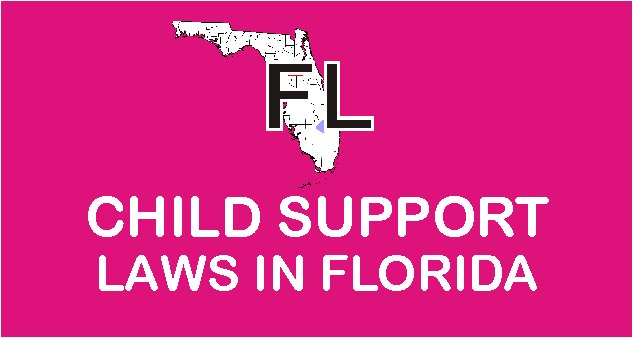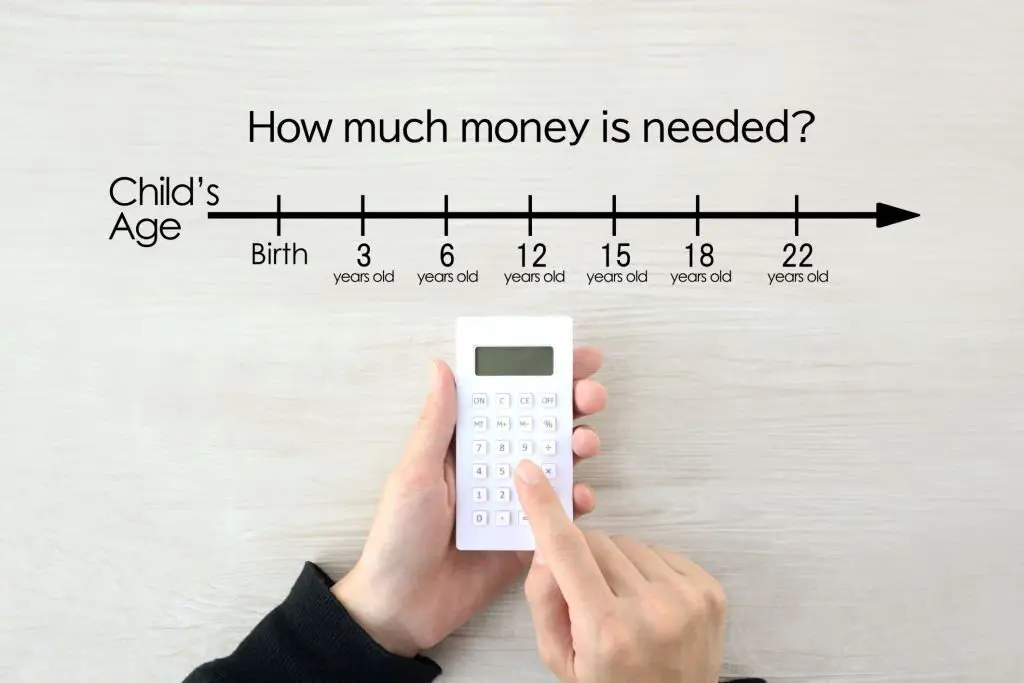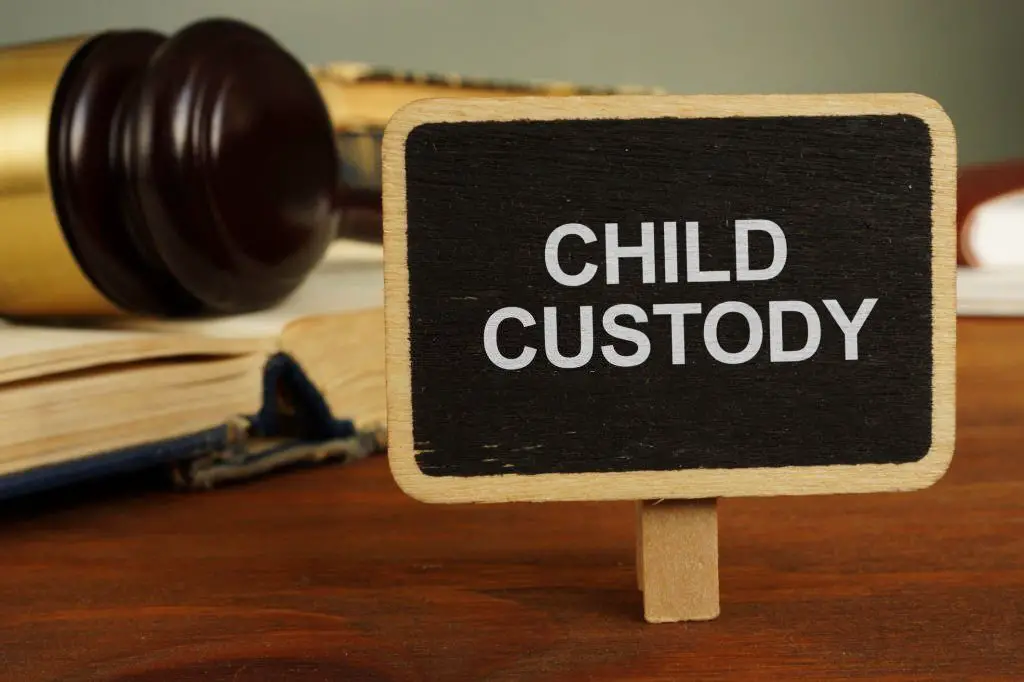
The laws governing child support in Florida are different from that of other states. FL child support law sets how much the child maintenance should be, and the duration of such payments, plus it seeks to guide parents in exceptional cases such as deviation, support for disabled children, and retroactive support.
As you may already know, child support (or child maintenance) is a continuous monetary payment made by a spouse to another spouse, guardian, caregiver, or the state for the upkeep of children after a divorce or separation.
The person who is required to pay child support is referred to as the “obligor,” whereas the person who is eligible to receive child maintenance is referred to as the “obligee.”
What are FL Child Support Laws?
In the Florida child support law, both parents are required by law to provide for their children to the extent of their respective means. Florida uses the “Income Shares Model,” in which case the courts determine how much money each parent would spend on a child or children if they were still living in the same home.
The parents then split this sum according to their individual incomes. The total amount of overnight visits for each parent as well as the cost of the kid’s health insurance and daycare will be taken into account when calculating the final child support obligation.
Section 61.30 of the Florida child support Statutes covers the elements that define gross income as well as the permitted deductions from gross income, and it is this section that primarily deals with child support.
According to Section 61.13, which deals with time-sharing, child support is calculated using the “gross-up approach” when each parent spends at least 20% of their time with the kid(ren). The Calculator displays how the “gross-up approach” affects the total amount of child support due.
The enforcement and modification of child support are covered by Section 61.14.
The question of what occurs when a child is a high school student when they turn 18 is covered by Section 743.07. Continuing child support for a kid who is dependent due to a mental or physical impairment that started before the child turned majority is also covered in this Section.
What does Child Support Cover in Florida?
Child support pays for a child’s essential needs, including clothing, shelter, and food. Education, sports, activities, travel, and entertainment are also included. Every child support decree in Florida must include a clause requiring the kid to have access to adequate and affordable health insurance. The amount of child support payable to the parent paying the health insurance will decrease.
The custodial parent makes the decision regarding how the money will be used. The received money may be set aside and used particularly for the child, or it may be combined with household finances to buy groceries for the family, pay for utilities, and rent.
Child Support When One Parent Lives Outside Florida
To enforce child support orders beyond state boundaries, each state has to have the Uniform Interstate Family Support Act (UIFSA) in place. Florida is no exception.
The UIFSA ensures that child support processes and procedures are consistent across states. When one spouse lives in another state where the Florida courts do not have authority to adjudicate or enforce orders, UIFSA reduces these bottlenecks.
In light of this, a Florida court may begin a child support case even if the parent requesting payments lives elsewhere. On the other hand, Florida can also help with the execution of a support judgment issued by another state. See Florida Statutes, Chapter 88.4011.
How is Child Maintenance Calculated In Florida?

Learn How Child Maintenance Calculated In Florida
To calculate child support, Florida the Florida Child Support Guidelines are based on the Income Shares Model which specifies the financial obligations necessary based on the number of children involved and the net income of both parents. Depending on the particulars of each case, child support payments’ length and amounts may vary.
The key determinants of the amount for support payments are:
- the total monthly income of both parents
- the number of children they share
- how often each parent spends the night with the kids
- the child’s educational, psychological, and medical needs will also be taken into account.
All these are built into the Florida Child Support Calculator or Child Support Worksheet.
How Florida Guidelines are Applied
The FL court will use child support guidelines, which are law-based and are sometimes known simply as “Guidelines. Guidelines establish a fundamental minimum amount of child maintenance, as outlined in the payment schedule, from which the court can differ after considering a variety of considerations.
The criteria are believed to be rational, and a decision of support that conforms to the guidelines is believed to be in the best interest of the child,” according to the guidelines.
The Florida Guidelines are based on Net Monthly Income. The court also will employ one of two methods after determining Net Monthly Income:
1. The first method applies if an obligor’s net monthly income is less than $7,500.00. The judge will consider the number of children in the household who are the subject of the petition in this case (note that a different calculation applies if an obligor has children in two different households).
2. The second method applies if an obligor’s net monthly income is more than $7,500.00.
Gross Income Included in Calculating Child Maintenance
For child support calculation purposes, gross income includes:
- all wages and salary, including commissions, military pay, tips, overtime, and bonuses
- self-employment income
- interest and dividends
- net rental income from property the parent owns
Even jobless parents are likely to have some sources of income, like:
- severance pay
- unemployment benefits
- retirement benefits
- veterans’ benefits
- disability benefits, or
- workers’ compensation awards.
An FL family court judge may also allocate an income value to parents who do not currently have income-earning employment (like a second house). If a jobless parent inherits assets that can be sold, for instance, the judge may include the property’s market value as a part of such parent’s income.
Where parents willfully go unemployed or underemployed in order to avoid paying child support, judges may infer (assign) income based on what they are supposed to be earning.
Net Income for FL Guidelines

How to determine Net Income for FL child support
Remove the following costs from the total gross income to get the parent’s net income for paying child support in Florida:
- Social Security taxes, or any mandated retirement plan contributions if the parent does not pay those taxes.
- Income taxes, both federal and state (based on the tax rate for a single person claiming one exemption)
- union dues
- The FL court has ruled the parent to pay the child’s health and dental insurance premiums, as well as additional medical bills.
Parents who have already paid child support for another kid or children (from a previous relationship) may be eligible for a refund.
Florida Child Support Calculator or Worksheet
While a child support calculator can be used to estimate child support, it is not a guarantee of the final amount of child maintenance that the judge will order. A child support worksheet is a form used by the FL courts (or negotiating spouses) to approximate the basic child support obligation of the parents.
Regardless of which approach you use, spouses can decide on a child support sum and amend the worksheet accordingly to ensure it accurately reflects their agreement. Both establish a presumption duty to pay child support.
The final decision on the amount of child support is made by the administrative law judge, administrator, or court.
Number of Children and How Support is Calculated in FL
This follows a standard child support schedule that spells out the minimum support to be provided by both parents. Click here to see the full schedule.
| Child or Children | ||||||
| Combined Monthly Net Income |
One | Two | Three | Four | Five | Six |
| 800.00 | 190 | 211 | 213 | 216 | 218 | 220 |
| 850.00 | 202 | 257 | 259 | 262 | 265 | 268 |
| 900.00 | 213 | 302 | 305 | 309 | 312 | 315 |
| 950.00 | 224 | 347 | 351 | 355 | 359 | 363 |
| 1000.00 | 235 | 365 | 397 | 402 | 406 | 410 |
Is Medical Health Insurance Part of Child Support in Florida?

Medical Health Insurance and Child Support in Florida
Yes, in addition to the amount of support determined by the guidelines in Florida, the parents will be responsible for the child’s health and dental insurance.
Whereas the noncustodial parent is presumed to provide coverage, this can readily be transferred to the other parent if it makes good sense.
For instance, suppose the custodial parent’s employer offers healthcare insurance for the dependent but the noncustodial parent does not.
Factors Florida Courts Consider Before Ordering Maintenance
The following factors must be considered by the court when determining whether Florida Family Code applies:
- The age of the child and needs; the parents’ ability to assist
- Financial resources available to the child
- For a set period of time, you have custody and access to a child.
- An increase or decrease in the obligee’s earnings or income due to the obligee’s property and assets
- Child care expenses incurred by either parent in order to keep a job
- any other children under the care of either party
- Any other children under the care of either party
- What kind of alimony or spousal maintenance is being paid or received;
- Obligor or obligee receives an automobile, house, or other benefits from his or her employer or business entity.
- The parties or the child’s special education, health-care, or other expenses
- The cost of traveling to obtain custody of and access to a child.
- Cash flow from any estate and assets, including real estate, personal property, and business property, can be positive or negative.
How to Challenge or Modify Child Support Order
Child support can always be modified as long as the modification would increase the amount owed by at least $50 or by 15%, whichever is higher, according to Florida child support laws. This includes earlier orders for child support made in connection with a prior divorce, paternity lawsuit, or Florida Department of Children and Families support order.
A parent may submit a petition for adjustment of child support at any time upon establishing the fundamental conditions for change. You must show that there’s been a substantial change in circumstances in order to alter child support. A Florida court may consider an alteration if:
- there is an existing court order mandating child support,
- a change in either parent’s income.
- a modification of either parent’s overnight parenting schedule
- whenever a change in support of at least 15% or $50 would come from the petition (whichever is greater).
Steps to Collect Child Support in Florida

Steps to Collect Child Support in Florida
Getting a child support order in place is only half the struggle in Florida. You’ll also have to collect the money itself. A noncustodial parent is responsible for paying the full amount of child maintenance per month as imposed by the court. Here are the steps for getting child support in FL
1. Open a Child Support Case
Complete a child support application with your local child support agency/office
2. Locate the Other Parent
To begin the child maintenance procedure in FL, the child support services (CSS) office will use the information provided by the applying parent, as well as information gathered from other sources, to try to locate the other parent.
3. Establish Parentage
It’s critical to establish a legitimate relationship with the child when the other parent has been located. The state will assist you in locating the sufficient means. Parents can choose to acknowledge their parentage voluntarily or organize a genetic screening.
4. Establish a Child Support Order
A Florida child support order specifies how much the other parent should pay and includes details such as the payment schedule and provisions for the child’s health insurance.
5. Set Up Payment
Deducting child maintenance from a parent’s paycheck and transferring the money to the other parent or guardian is the most typical method of payment. It’s a simple way to make and track child support payments.
6. Enforce the Support Order
Your FL child support services will enforce the child support order if the noncustodial parent does not pay the full amount or does not pay any. Exposing overdue child support payments to credit bureaus, intercepting income tax refunds, and Withholding child maintenance from unemployment or worker’s compensation benefits are examples of other enforcement measures.
7. Review the Order
Three years after the order is issued, either parent can request their local child support office to revise it. They can ask for a reassessment sooner than three years if a parent’s situation has changed significantly, such as loss of employment or imprisonment.
Florida Child Support Services Office, Number and Login Portal
Florida Department of Revenue Child Support Program
Address: 400 W Robinson St, Hurston South Tower, Suite S113,
Orlando, FL 32801,
United States
Phone: +1 850-488-5437
Website: http://floridarevenue.com/childsupport/
Retroactive Child Support and Arrears
The obligation to pay child support is not subject to any time limits. Thus, the state has the right to punish a person at any moment for failing to make child support payments. The state may pursue the following measures to recover unpaid child support:
- garnishing of salaries
- Liens being placed on real estate
- confiscating bank accounts
- applying tax rebates toward outstanding child support obligations
- taking money from the estate of a deceased parent
- an order may be issued that accrues interests if the payments
- if the payments can be made through the State Disbursement Unit, a judgment may be entered that accrues interest on any arrears.
- the offender could be found in contempt of court and given a jail term.
- suspension of a driver’s license, license plate, or car registration.
- passport suspension and
- revocation of licenses, including those for businesses and occupations.
How to Enforce Child Support Arrearages in FL
Filing a “motion for civil contempt” (used when a person violates a court order) is the most typical technique to enforce a delayed child support order. By submitting this written request, you are notifying the court that the noncustodial parent is not paying child support as required by the current court order.
You have 3 choices for filing a motion for civil contempt:
1. on your own,
2. with the assistance of a child support attorney, or
3. by requesting Florida Child Support Enforcement to do it for you.
You may use this form if you are submitting the move for civil contempt on your own.
You must demonstrate the following in order to establish that the other parent of your child is in violation of the child support order:
- You have a legally binding order for child support that has been authorized and signed by a judge
- According to the court’s order, the other parent has not paid child support, and
- The other parent has the resources to make the payment.
The other parent must prove they are unable to pay in order to avoid being found in contempt of court because the court will presume they have the financial means to do so.
If you feel the arrears are being demanded wrongly, you can learn how to get child support arrears dismissed HERE.
How to Pay Child Maintenance in Florida
In Florida, parents can pay child maintenance in a variety of ways, as long as your order doesn’t state otherwise:
- by debit or credit card,
- mail,
- check
- bank transfer
- direct deposit
- income withholding, or
- auto-draft from a bank account.
How to Check your Child Support Payment History in FL

How to Check Child Support Payment History in FL
When there are disagreements between the parents and a need to confirm how much money is owed, child support payment records are extremely beneficial.
To get your child support payment information in Florida, you can choose from the following methods:
- Contact the Florida State Disbursement Unit at 1-877-769-0251.
- If you have a case with us, contact Child Support eServices.
- The website of the clerks of the court – MyFloridaCounty.com
Get all the details about Florida child support information here.
When Does Child Support End in Florida?
Child support often ceases when the child becomes 18 years old. However, if the child is still enrolled in high school, the support can be continued until the child turns 19. Furthermore, help may be continued past the age of 19 if the child has specific requirements.
Child support in Florida may be terminated earlier due to a small twist in the law. Child support will stop at age 18 if your child is unquestionably not on schedule to finish high school before turning 19. That clause encourages parents to see to it that their kids graduate on time. Although such an effect is not likely what was intended, it nonetheless exists.
Also, the Florida court “may order that one or both parents to support a child until:
- the child emancipates by getting married,
- the child’s disabilities are removed, or
- the child dies.
What is the Average Child Support Payment in FL?
In Florida, a parent who supports a single child and makes the state’s minimum wage or earns a salary of $650 is required to pay a base child support sum of $74.
However, , if a parent’s monthly income is over $10,000, child support is determined by multiplying that amount by a percentage determined by the number of children. One child represents 5% of this, two represent 7.5%, three represent 9.5%, four represent 11%, five represent 12%, and six represent 12.5%.

Understanding Custody Rights of a Child in Florida
How Does FL Child Support Work if one Parent Has no Job?
If a parent is unemployed or underemployed, the court will determine child support based on the parent’s most recent income or their capabilities and capacity to work since in Florida, child support payments are typically based on the parent’s current income.
Until a parent secures job, the child support amounts may be determined based on the parent’s unemployment benefit amount.
Is Child Support Tax Deductible in Florida?
NO. In Florida, child support payments are neither taxable to the recipient nor tax-deductible by the payer as stated by the IRS. Don’t include child support payments when calculating your gross income to see whether you have to file a tax return.
However, either parent may be eligible for a dependency exemption per child. If the parents can’t agree on who receives the exemption, the judge will set out the terms in a court order.
Getting a Skilled Florida Child Support Attorney
If you are involved in a family law matter in Florida, you may have a lot more questions than answers at this moment. You are not alone; Correspondence with members has shown that using the services of specialized child support attorneys saves a lot of hassles and most importantly, ensures you come out as a winner for you and your kid.
If you need to fight your child maintenance cause in FL with confidence, then you’ll need attorneys that are both empathetic and strong.
Luckily, we have compiled a database of these expert child support lawyers and made them available for the convenience of our members. You can reach them at the click of a button for legal advice and representation on child maintenance.
Click Here to Get our Free Florida Alimony recommendation.
Florida Resource
- Florida Child Adoption Guidelines
- Florida Childcare Guidelines
- Florida Child Custody and Visitation Guidelines
- Florida Child Support Guidelines
- Florida Divorce Guidelines
- Florida Marital Property Guidelines
- Florida Spousal Support Guidelines
- How to Check Florida Child Support Payment History
Child Support Laws in all 50 States
A - Alabama | Alaska | Arizona | Arkansas
C - California | Colorado | Connecticut
D-H - Delaware | Florida | Georgia | Hawaii
I - Idaho | Illinois | Indiana | Iowa
K-L - Kansas | Kentucky | Louisiana
M - Maine | Maryland | Massachusetts | Michigan | Minnesota | Mississippi | Missouri | Montana
N - Nebraska | Nevada | New Hampshire | New Jersey | New Mexico | New York | North Carolina | North Dakota
O - Ohio | Oklahoma | Oregon
P-S - Pennsylvania | Rhode Island | South Carolina | South Dakota
T-U - Tennessee | Texas | Utah
V-W - Vermont | Virginia | Washington DC | Washington State | West Virginia | Wisconsin | Wyoming




